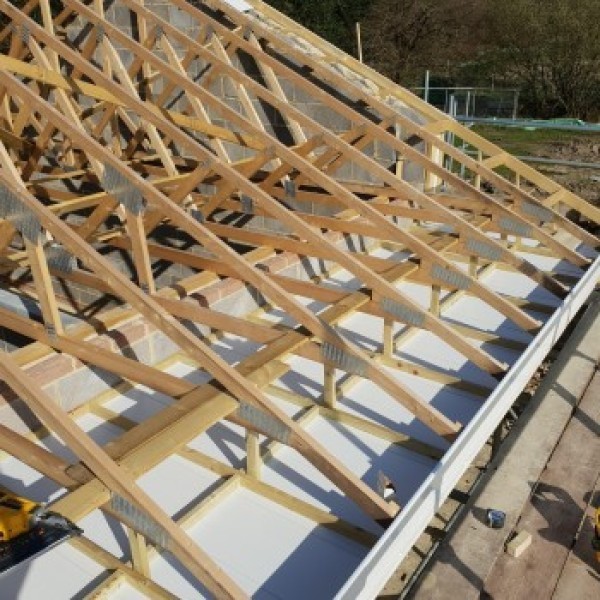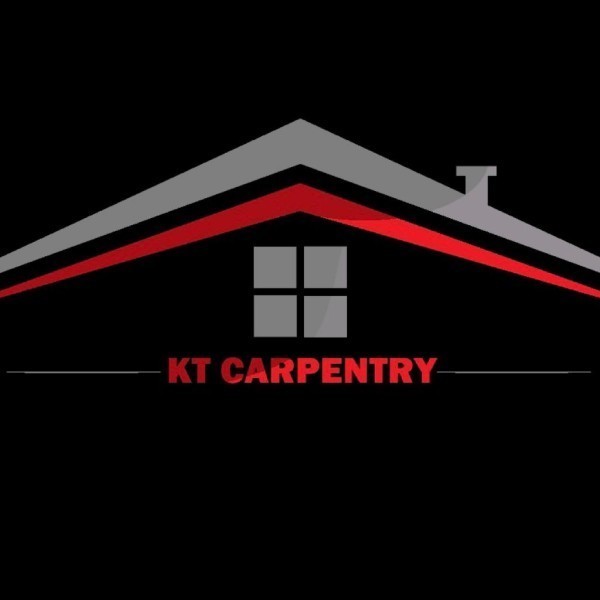Carpenters in Cowes
Filter your search
Post your job FREE and let trades come to you
Save time by filling out our simple job post form today and your job will be sent to trades in your area so you can sit back, relax and wait for available trades to contact you.
Post your job FREESearch Carpenters in places nearby
Introduction to Carpenters in Cowes
Carpenters in Cowes are skilled artisans who play a vital role in shaping the town's architectural landscape. Nestled on the Isle of Wight, Cowes is renowned for its maritime heritage and charming buildings, many of which owe their beauty to the craftsmanship of local carpenters. These professionals are adept at working with wood, creating everything from bespoke furniture to intricate architectural details. In this article, we'll explore the world of carpentry in Cowes, delving into the skills, tools, and projects that define this essential trade.
The History of Carpentry in Cowes
The history of carpentry in Cowes is as rich as the town's maritime past. From the early days of shipbuilding to modern construction, carpenters have been integral to Cowes' development. In the 19th century, Cowes was a bustling hub for shipbuilding, with carpenters crafting the wooden vessels that sailed the seas. As the town evolved, so did the role of carpenters, who began to focus more on building homes and public structures. Today, carpenters in Cowes continue to honour this legacy, blending traditional techniques with contemporary designs.
Traditional Techniques and Modern Innovations
Carpenters in Cowes have mastered a blend of traditional techniques and modern innovations. While the use of hand tools like chisels and saws remains prevalent, many carpenters have embraced power tools and computer-aided design (CAD) software to enhance precision and efficiency. This fusion of old and new allows carpenters to tackle a wide range of projects, from restoring historic buildings to crafting modern interiors.
The Skills of a Carpenter
Being a carpenter requires a diverse set of skills. In Cowes, carpenters are known for their attention to detail, creativity, and problem-solving abilities. They must be proficient in reading blueprints, measuring accurately, and using various tools safely. Additionally, carpenters need a good understanding of different types of wood and their properties, as well as knowledge of building codes and regulations.
Attention to Detail
Attention to detail is crucial for carpenters in Cowes. Whether they're crafting a custom piece of furniture or installing a staircase, precision is key. A small mistake can lead to significant issues down the line, so carpenters must be meticulous in their work.
Creativity and Problem-Solving
Creativity and problem-solving are also essential skills for carpenters. In Cowes, carpenters often work on bespoke projects that require innovative solutions. They must be able to think on their feet and adapt to changing circumstances, whether it's finding a way to fit a piece into a tight space or coming up with a unique design that meets a client's needs.
Tools of the Trade
The tools of the trade are fundamental to a carpenter's work. In Cowes, carpenters use a wide array of tools to complete their projects. These range from traditional hand tools to modern power tools, each serving a specific purpose in the carpentry process.
Hand Tools
Hand tools are the backbone of carpentry. Carpenters in Cowes rely on tools like hammers, chisels, and saws to shape and join wood. These tools require skill and precision, and many carpenters take pride in their ability to use them effectively.
Power Tools
Power tools have revolutionised carpentry, allowing for greater speed and accuracy. In Cowes, carpenters use tools like electric saws, drills, and sanders to streamline their work. These tools are especially useful for larger projects, where efficiency is crucial.
Types of Projects Undertaken by Carpenters in Cowes
Carpenters in Cowes undertake a wide variety of projects, each requiring a unique set of skills and tools. From residential to commercial projects, these artisans are involved in every stage of construction and renovation.
Residential Projects
Residential projects are a significant part of a carpenter's work in Cowes. Carpenters are often called upon to build or renovate homes, creating everything from custom cabinetry to outdoor decking. Their work enhances the beauty and functionality of living spaces, making homes more comfortable and appealing.
Commercial Projects
Commercial projects also play a crucial role in a carpenter's portfolio. In Cowes, carpenters work on a range of commercial buildings, from shops and offices to restaurants and hotels. Their expertise ensures that these spaces are not only aesthetically pleasing but also structurally sound and compliant with regulations.
Challenges Faced by Carpenters in Cowes
Like any profession, carpentry comes with its own set of challenges. In Cowes, carpenters must navigate issues such as weather conditions, material shortages, and evolving building codes. Despite these challenges, they remain committed to delivering high-quality work.
Weather Conditions
Weather conditions can significantly impact carpentry projects in Cowes. Rain, wind, and humidity can affect the quality of wood and the progress of outdoor projects. Carpenters must plan accordingly, often adjusting their schedules to accommodate the weather.
Material Shortages
Material shortages are another challenge faced by carpenters. In Cowes, access to quality wood and other materials can be limited, requiring carpenters to be resourceful and adaptable. They often need to find alternative materials or suppliers to keep projects on track.
The Importance of Sustainable Practices
Sustainability is becoming increasingly important in the world of carpentry. In Cowes, many carpenters are adopting eco-friendly practices to reduce their environmental impact. This includes using sustainable materials, minimising waste, and implementing energy-efficient techniques.
Sustainable Materials
Using sustainable materials is a key aspect of eco-friendly carpentry. Carpenters in Cowes often choose wood from responsibly managed forests, ensuring that their projects are environmentally responsible. They may also use recycled or reclaimed wood, giving new life to old materials.
Minimising Waste
Minimising waste is another important practice for carpenters. In Cowes, carpenters strive to use materials efficiently, reducing offcuts and scraps. They may also recycle or repurpose leftover materials, contributing to a more sustainable construction process.
Training and Education for Carpenters
Training and education are essential for aspiring carpenters in Cowes. Many start their careers through apprenticeships, gaining hands-on experience under the guidance of experienced professionals. Others may pursue formal education, studying carpentry at technical schools or colleges.
Apprenticeships
Apprenticeships are a traditional pathway into carpentry. In Cowes, apprentices learn the trade by working alongside skilled carpenters, gaining practical experience and knowledge. This on-the-job training is invaluable, providing a solid foundation for a successful career.
Formal Education
Formal education is another option for those interested in carpentry. Technical schools and colleges offer courses in carpentry, covering topics such as woodworking, blueprint reading, and safety. These programmes provide a comprehensive understanding of the trade, preparing students for a variety of carpentry roles.
The Future of Carpentry in Cowes
The future of carpentry in Cowes looks bright, with new opportunities and challenges on the horizon. As technology continues to evolve, carpenters will need to adapt, embracing new tools and techniques. At the same time, the demand for skilled carpenters is expected to grow, driven by ongoing construction and renovation projects.
Embracing Technology
Embracing technology is crucial for the future of carpentry. In Cowes, carpenters are already using CAD software and other digital tools to enhance their work. As technology advances, these tools will become even more integral to the carpentry process, allowing for greater precision and efficiency.
Growing Demand for Skilled Carpenters
The demand for skilled carpenters is expected to increase in Cowes. With ongoing construction and renovation projects, there will be plenty of opportunities for carpenters to showcase their skills. This growing demand highlights the importance of training and education, ensuring that the next generation of carpenters is well-prepared to meet the needs of the industry.
Frequently Asked Questions
- What types of projects do carpenters in Cowes typically work on? Carpenters in Cowes work on a variety of projects, including residential and commercial construction, renovations, and custom furniture making.
- How do carpenters in Cowes ensure their work is sustainable? Many carpenters in Cowes use sustainable materials, minimise waste, and adopt eco-friendly practices to reduce their environmental impact.
- What skills are essential for a carpenter in Cowes? Essential skills for carpenters include attention to detail, creativity, problem-solving, and proficiency with tools and materials.
- How can someone become a carpenter in Cowes? Aspiring carpenters can pursue apprenticeships or formal education in carpentry to gain the necessary skills and experience.
- What challenges do carpenters in Cowes face? Carpenters in Cowes face challenges such as weather conditions, material shortages, and evolving building codes.
- What is the future of carpentry in Cowes? The future of carpentry in Cowes is promising, with growing demand for skilled carpenters and advancements in technology shaping the industry.






















